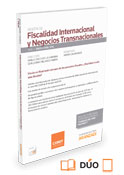
Every new year marks the new beginning of something or the closure of something else. January 2024 has been a month in which the BEFIT Proposal public consultation by European Commission is closed, on the 24th of the month.
Not long ago my colleague, Diego Viñal Ménendez Ponte[1], commented on the proposal as presented in September 2023.
Here we are, a few weeks later, where the deadline of feedback was closed last week. Many important international stakeholders provided their opinions and had “something to say”. What is interesting is the common approach and some uniting comments presented by American and European tax practitioners, despite the difference in their economical interests.
It is undeniable that BEFIT Proposal aims to simplify the way in which large organisations compute and pay corporate tax in the EU, without harming the growth and investment within member states, and ensuring fair and sustainable tax revenues. This proposal introduces a common wide system of rules for the calculation of the corporate tax base, for EU large business groups. As you may know, the tax bases of all group members would be aggregated into one single tax base. By using a transitional allocation rule, each member of the BEFIT group would have a percentage of the aggregated tax base calculated on the basis of the average of the taxable results in the previous 3 fiscal years.
I had the chance to review number of comments and opinions presented to the EC in the last few days. Although, recommendations came from different sectors (IATA, Telefónica, AMCHAM, European Banking Federation, etc.) with divergent interests and tax challenges, most of them alleged identical concerns, with which I couldn´t agree more.
Timing was, unanimously, perceived unfavourable. The release of the proposal overlaps with the ongoing implementation of the Pillar Two rules across EU. These new rules represent a fundamental change in the application and computation of taxes by large organisations. We are all aware they are incredibly complex for both businesses and tax administrations. For this reason, the targeted date of introducing BEFIT in the beginning of 2028 in domestic laws, and fixing its entry into force on July 1st, 2028, is believed to be too soon. This time limit is only 18 months after the Pillar Two transitional CbCR Safe Harbor would no longer be applicable and when MNEs would be required to complete a full GloBE calculation, in every jurisdiction where they operate.
This deadline does not allow enough time for Pillar Two to be thoroughly settled into the domestic tax system across all member states, nor to be totally understood. It is strongly recommended to evaluate the full impact of Pillar Two, and then prepare a more adequate implementation of BEFIT to whet the areas where further harmonisation is required.
[1] https://www.legaltoday.com/opinion/blogs/fiscal-y-legal/blog-fiscalidad-internacional/whats-up-befit-2023-09-21/
For this reason, it would be more beneficial to postpone the entry into force to at least 2030 or based on the progress made on Pillar Two.
BEFIT Proposal´s objective is to simplify the way large corporations compute corporate taxes in EU. It appears that this purpose is not met, as Pillar Two rules cannot coexist with BEFIT without creating more layer of burdens on taxpayers.
By reallocating taxable profits between various jurisdictions inconsistently with where said profits are recognized for financial accounting purposes, BEFIT would misrepresent a group’s Pillar Two tax calculations and could expose the group to an unjustified top-up tax. This is a direct consequence of a difference between domestic approach to minimum taxation under Pillar Two and the BEFIT Proposal approach.
Furthermore, it is ambiguous how BEFIT would interact with Pillar One and existing international tax treaties. Large organisations would have to apply the arm´s length principle within the EU to ensure that appropriate profit is recorded in each jurisdiction. This could result of member states having different tax treaties with third countries despite BEFIT. These incongruencies would limit the extent to which the Proposal could potentially simplify tax filings. More clarity and commitment are required to relief from double taxation.
Finland and the Netherlands have already publicly explained their concerns about the proposal, mentioning, apart from the timing, the potential impact on national future tax revenue and the administrative burden triggered by the co-existence of three parallel profit tax systems, the local tax regime, Pillar Two and BEFIT.
The current BEFIT form shows uncertainty, complexity and administrative burden for businesses established in EU. Particularly, it is noted that the proposed allocation mechanism would represent some challenges to businesses with their tax calculations and on the long-term investments in EU, because the approaches based on Pillar One, Pillar Two and other EU Directives are not aligned. For an instance, determining the BEFIT group´s scope of entities could differ from the group entity under Pillar Two (groups with an annual combined revenue of €750 M), as the group under BEFIT is limited to EU entities who meet the 75% ownership threshold. Also, the calculation of the taxable base under BEFIT differs from the methodology presented under Pillar Two.
There are number of areas where the BEFIT proposal could lead to so many discrepancies causing discouragement of investment, which need to be weighed against potential benefits. Also, BEFIT should be optional at the organisation level to avoid measures conceived as a “one-sizefits-all” regime.
It appears that the BEFIT Proposal did not meet its purposes and still leaves much to be desired. Tax practitioners from all sectors agree to disagree with the EC. They don´t see major significant benefits for taxpayers. On the contrary, they will add more confusion and frustration to the tax filing obligations of organisations and undoubtfully increase all compliance costs, just like what we are witnessing with the current Pillar Two implementation, where there is a skewed balance between costs and benefits.
Unfortunately, as much as the EC had only noble intentions with the BEFIT, we cannot say “it’s the thought that counts”, because this thought would be too costly for the large corporation and would create a mess.
I believe the EC will have no other choice but to draw back and readjust its target for the proposal and the deadlines.
The opinion expressed in this post is exclusive to its author, and in no way can it be imputed or attributed to any person or entity in his or her professional environment.




